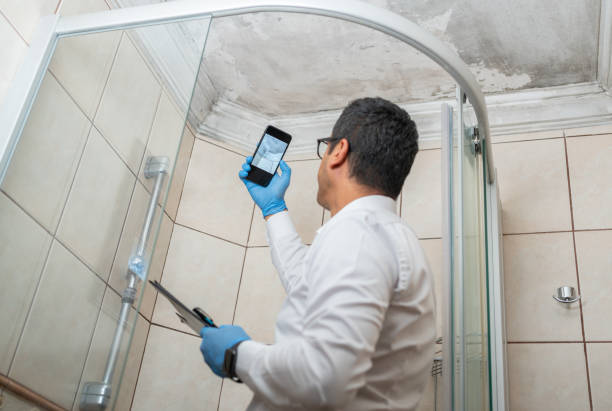Finding Trustworthy Expertise: A Guide to Local Mold Inspection Companies

The significance of locating a Local Mold Inspection Companies cannot be overstated, especially given the potential health risks and property damage associated with mold growth. Mold, a type of fungus, thrives in moist, humid environments and can be a common issue in many homes and buildings. The decision to engage a local mold inspection company brings numerous benefits, ensuring that mold issues are addressed promptly, professionally, and effectively.
1. Prompt Response and Accessibility:
Local mold inspection companies offer the advantage of being readily accessible. In situations where mold is suspected, time is of the essence. Local companies can respond quickly, an essential factor in halting the progression of mold growth and minimizing its impact. Quick response times also mean that any associated health risks are addressed sooner, providing peace of mind to property owners and occupants.
2. Familiarity with Local Climate and Construction:
Mold growth is influenced by local climate conditions, such as humidity levels, temperature, and rainfall patterns. Local mold inspectors have a deep understanding of the specific environmental factors in their area that contribute to mold growth. Additionally, they are familiar with common construction practices and building materials used locally, which can affect mold susceptibility. This knowledge allows them to provide more accurate assessments and tailored recommendations.
3. Knowledge of Local Regulations and Standards:
Different regions may have specific regulations and standards regarding mold inspection and remediation. Local mold inspection companies are typically well-versed in these requirements, ensuring that their services comply with local laws and guidelines. This compliance is crucial for both residential and commercial properties, particularly in terms of legal liability and insurance claims.
4. Building Local Relationships and Trust:
Working with a local company allows property owners to build a relationship based on trust and familiarity. In cases where repeated inspections or long-term mold management is needed, having a consistent, reliable local service provider is invaluable. These relationships also mean that the mold inspection company has a vested interest in the health and safety of the community they serve.
5. Quick Follow-Up and Ongoing Support:
Post-remediation, it is often necessary to have follow-up inspections to ensure that mold has been effectively removed and that preventative measures are working. Local companies can provide these follow-up services promptly. Moreover, they can offer ongoing support and advice to prevent future mold issues, such as recommending changes in ventilation, humidity control, or maintenance practices.
6. Cost-Effective Solutions:
Choosing a local mold inspection company can be more cost-effective. Travel time and expenses are typically lower for local service providers, savings that can often be passed on to the customer. Additionally, local companies may offer competitive pricing within their community to establish and maintain their client base.
7. Community Reputation and References:
Local mold inspection companies are often more invested in maintaining a good reputation within their community. This motivation can lead to higher service standards and a commitment to customer satisfaction. Additionally, local references and reviews are easier to verify, allowing property owners to make more informed decisions based on the experiences of their neighbors and peers.
8. Support for Local Business:
Choosing a local company supports the local economy. It promotes the growth of local businesses, which in turn contributes to the economic health of the community. In conclusion, the importance of finding a local mold inspection company is multi-faceted, encompassing aspects of health and safety, local expertise, regulatory compliance, relationship building, and community support. These companies play a vital role in identifying, addressing, and preventing mold-related issues, thereby ensuring safer and healthier living and working environments.




